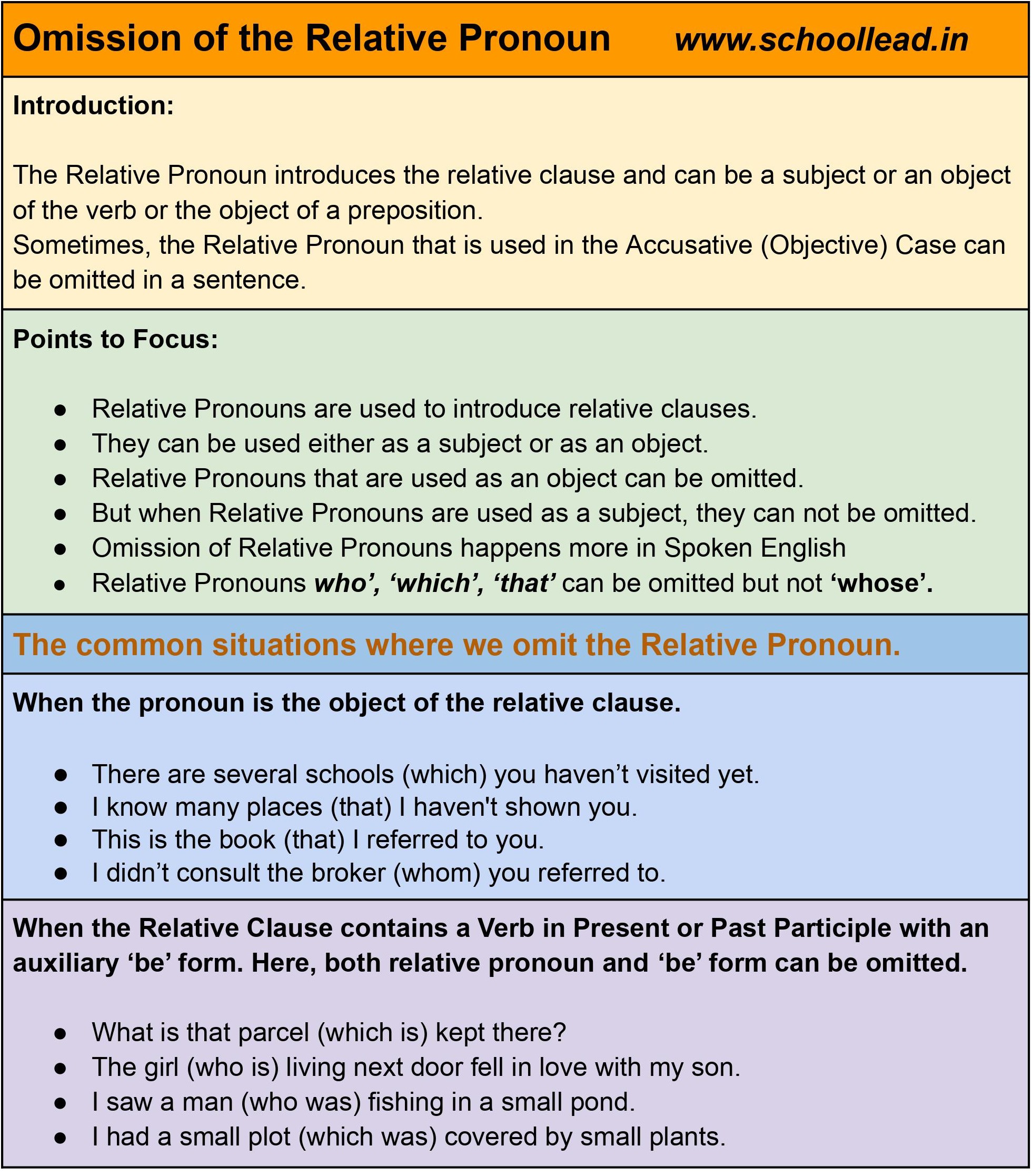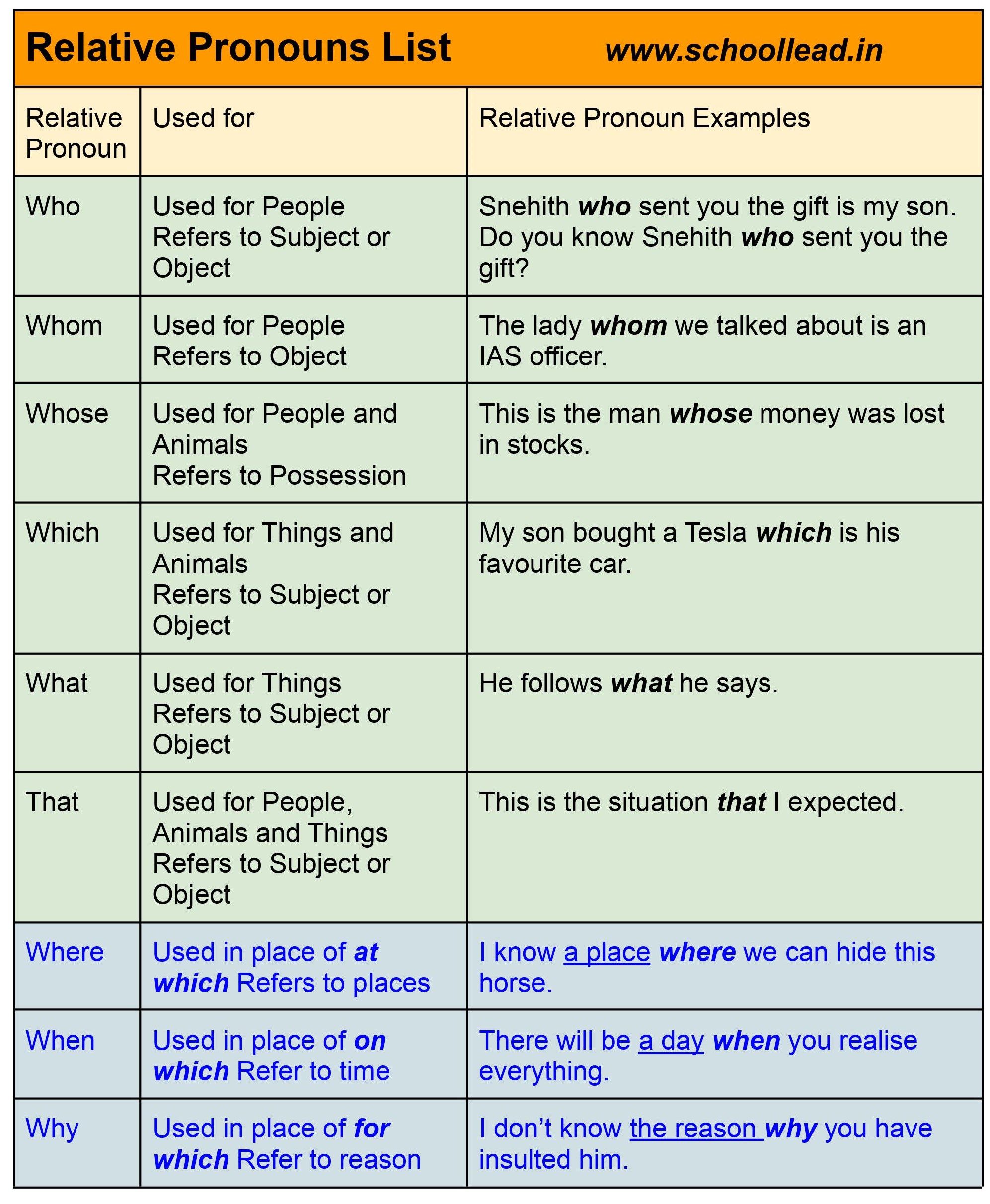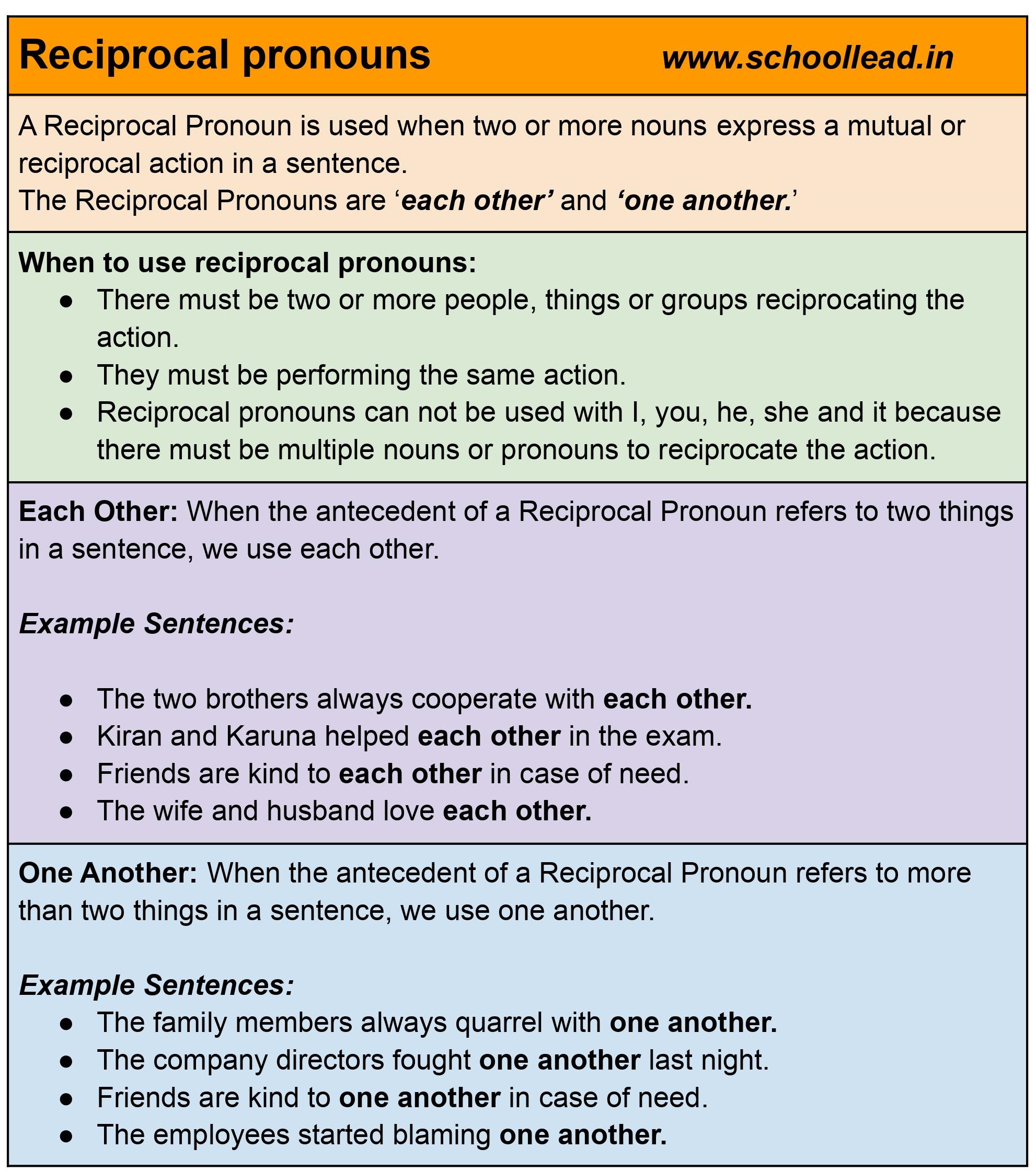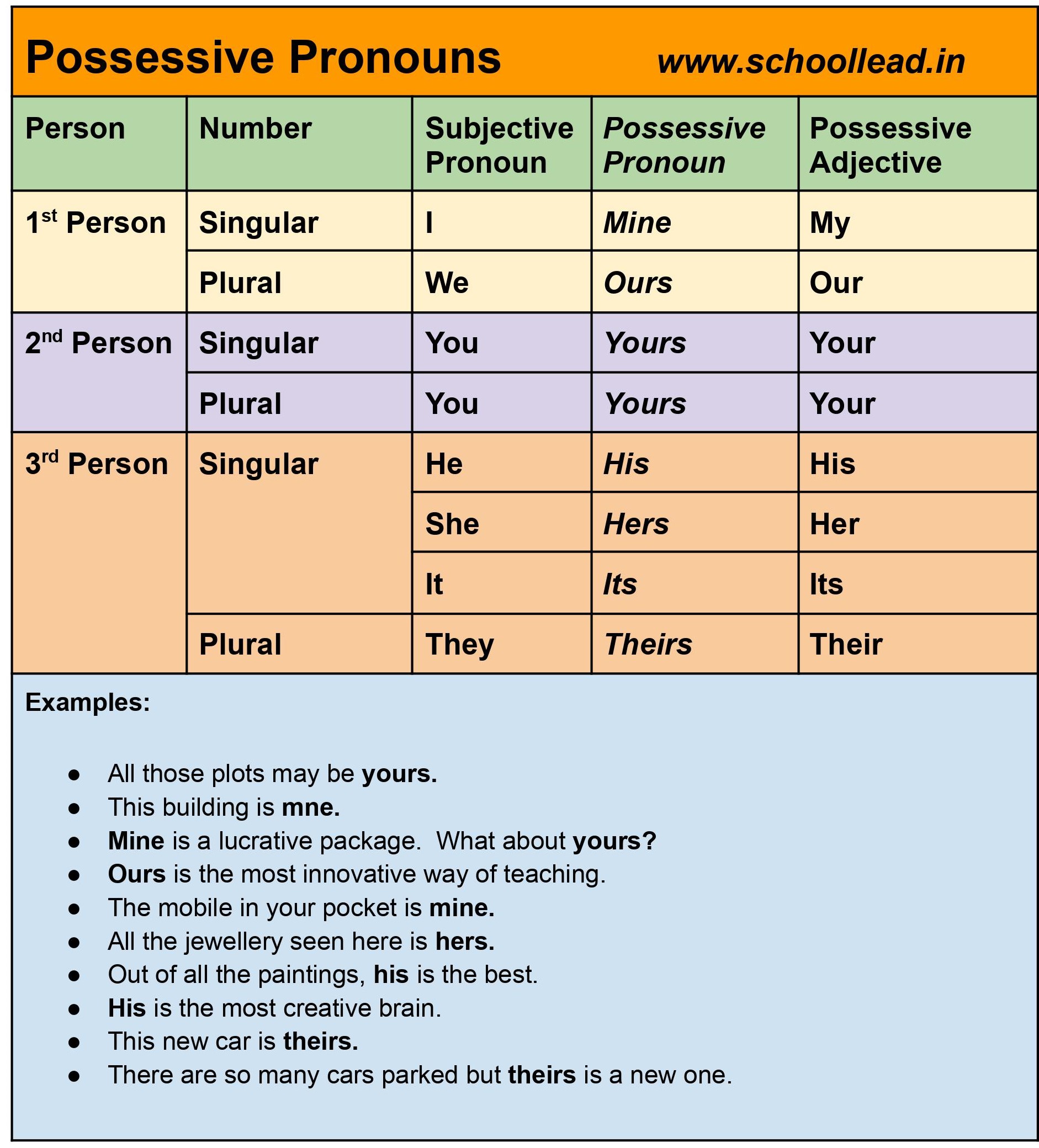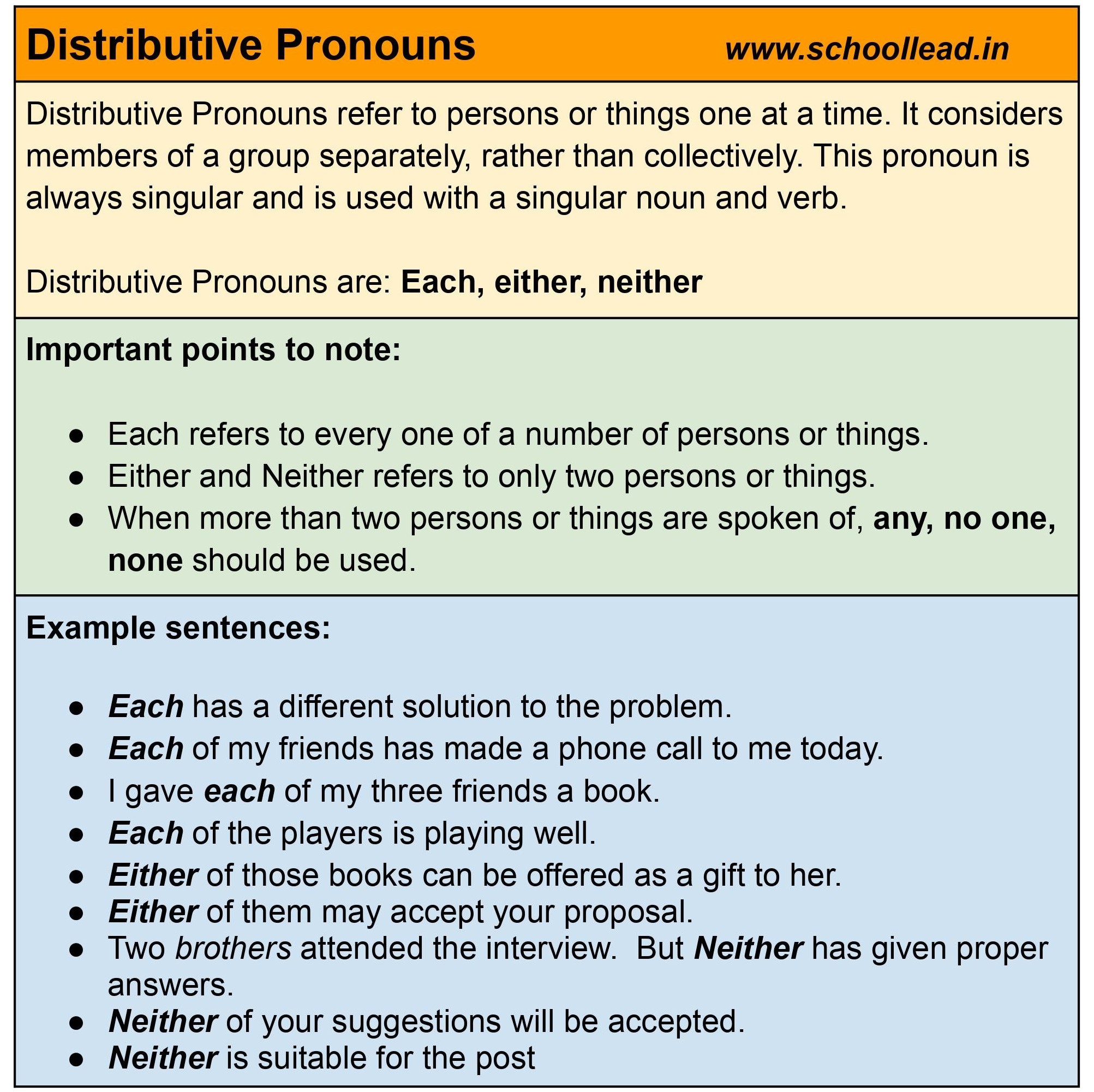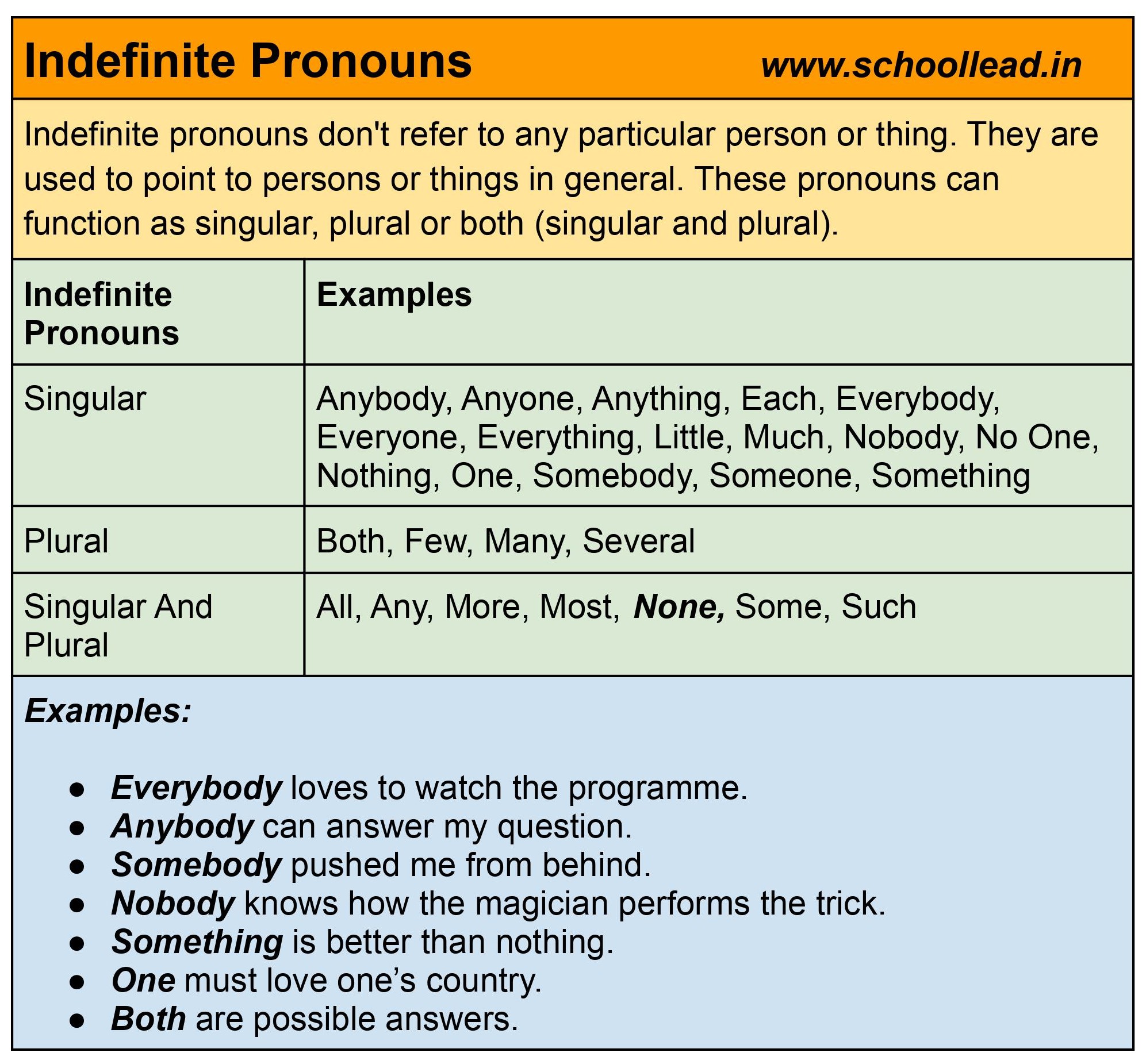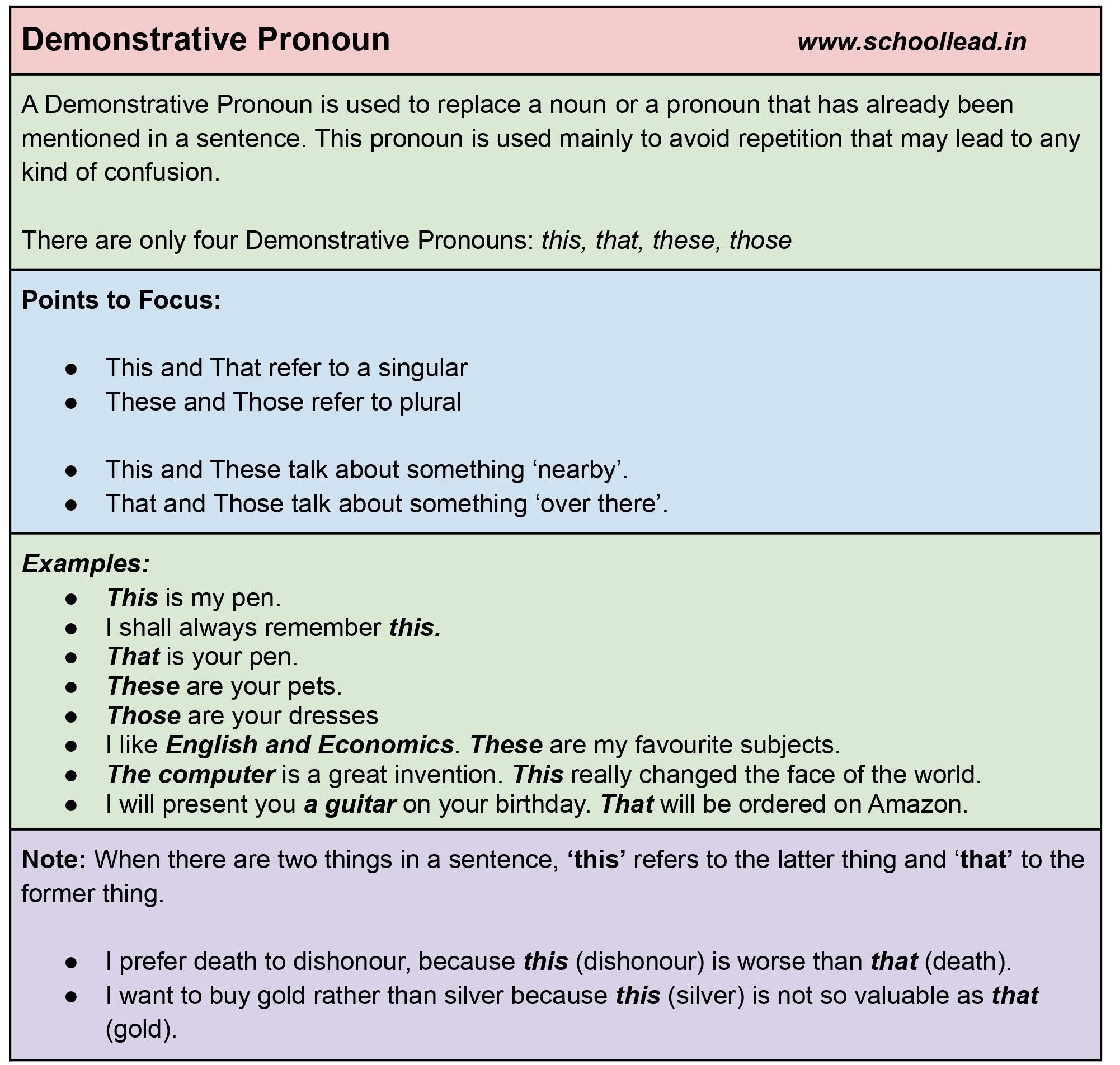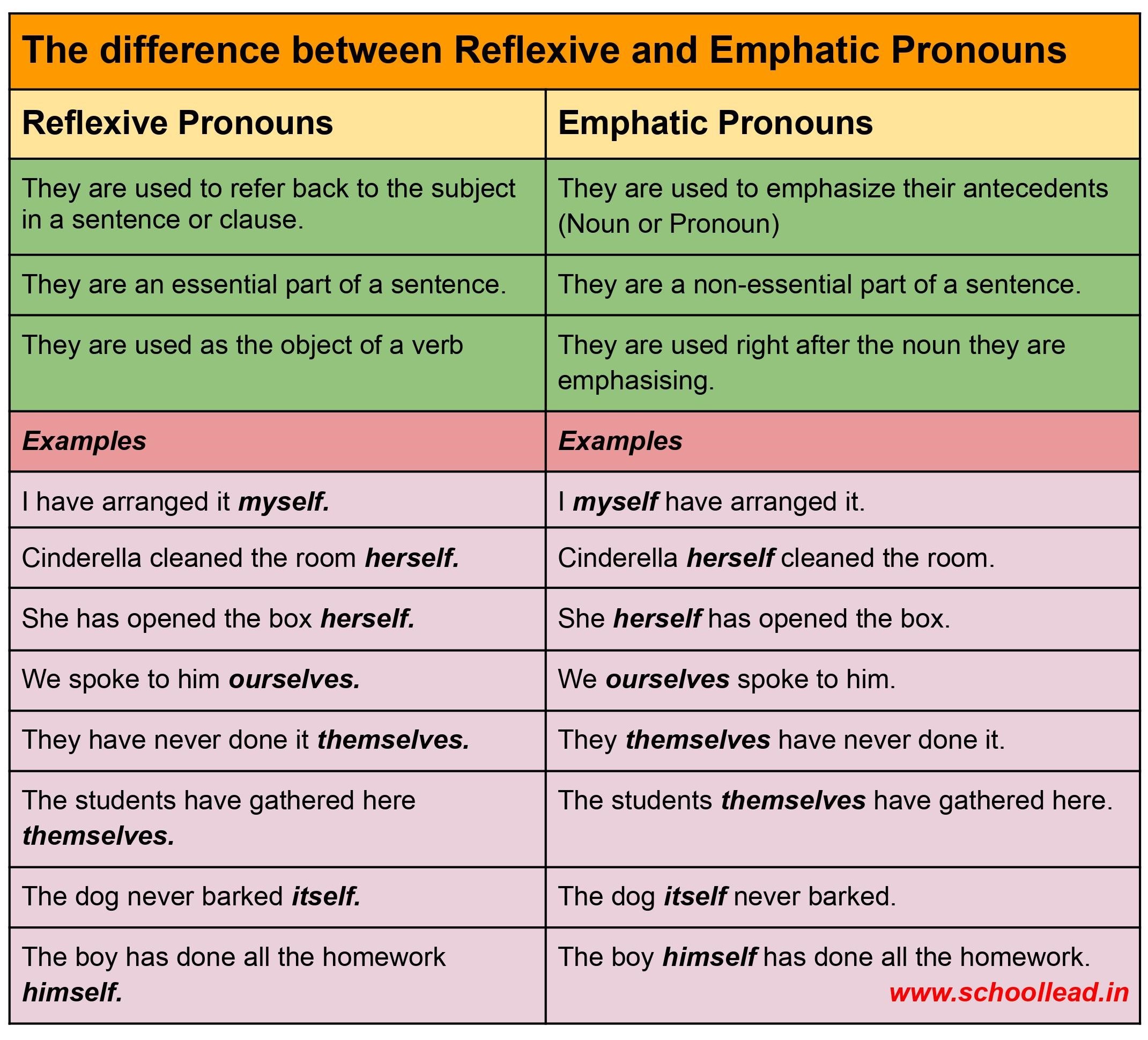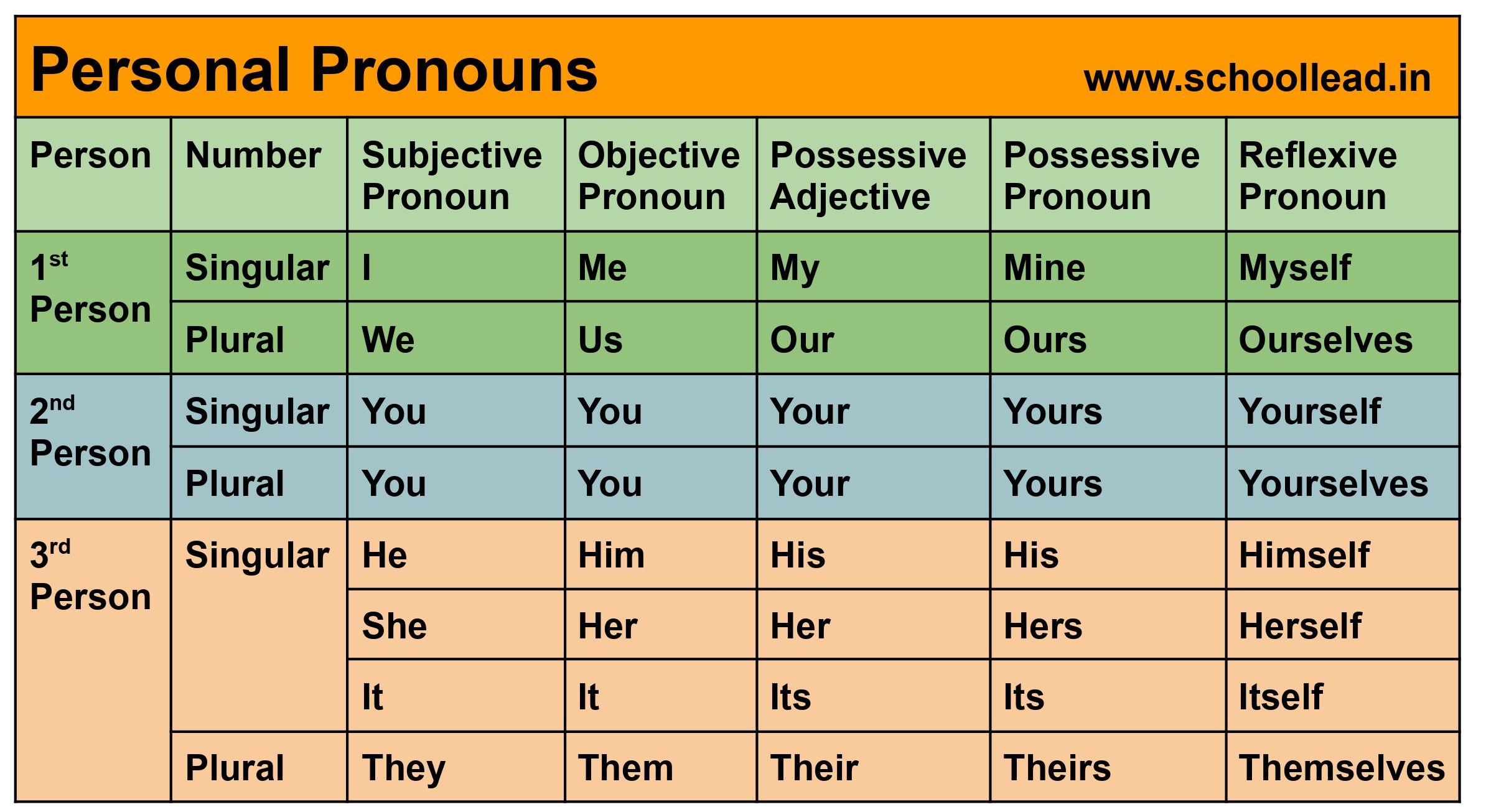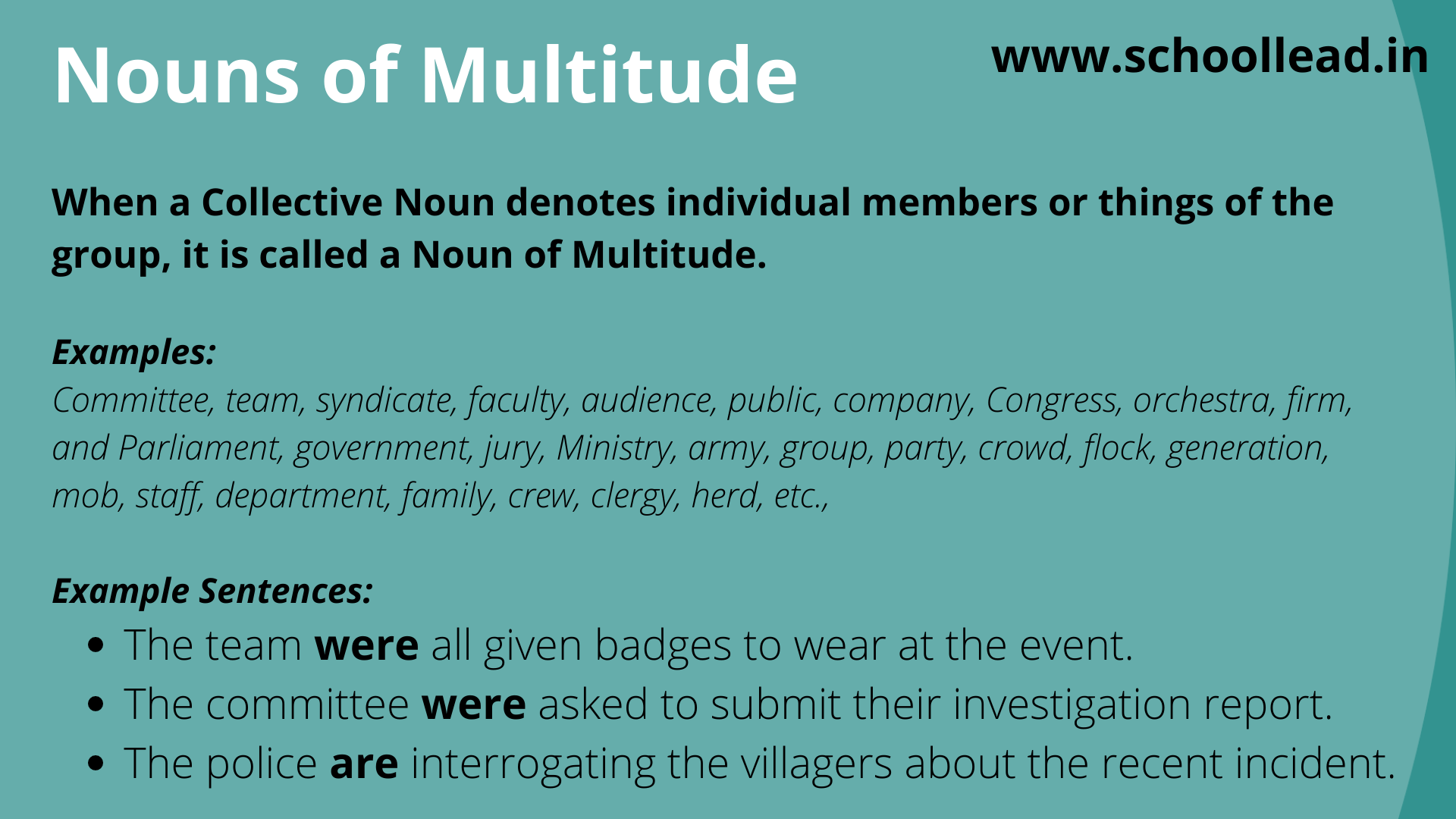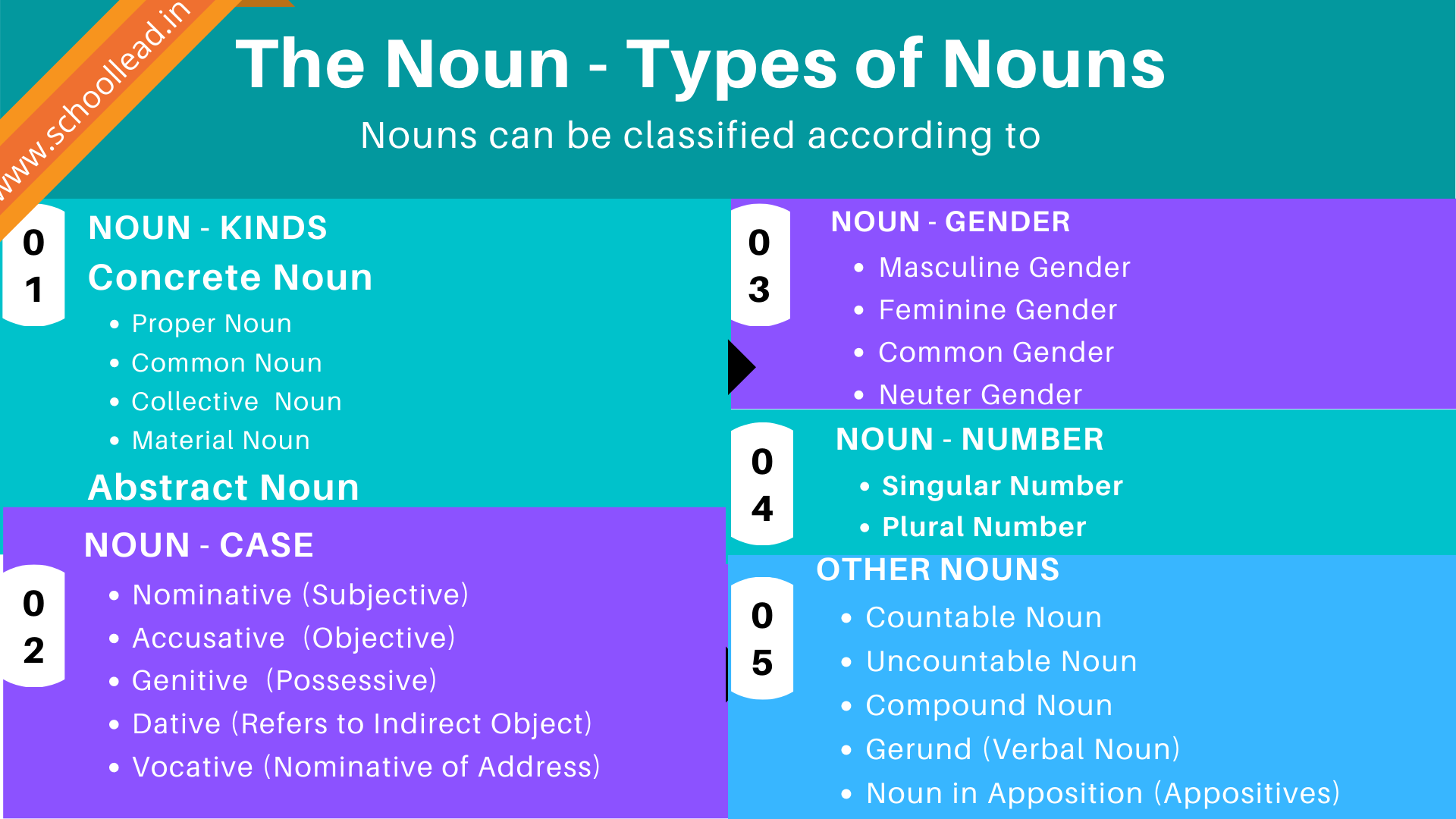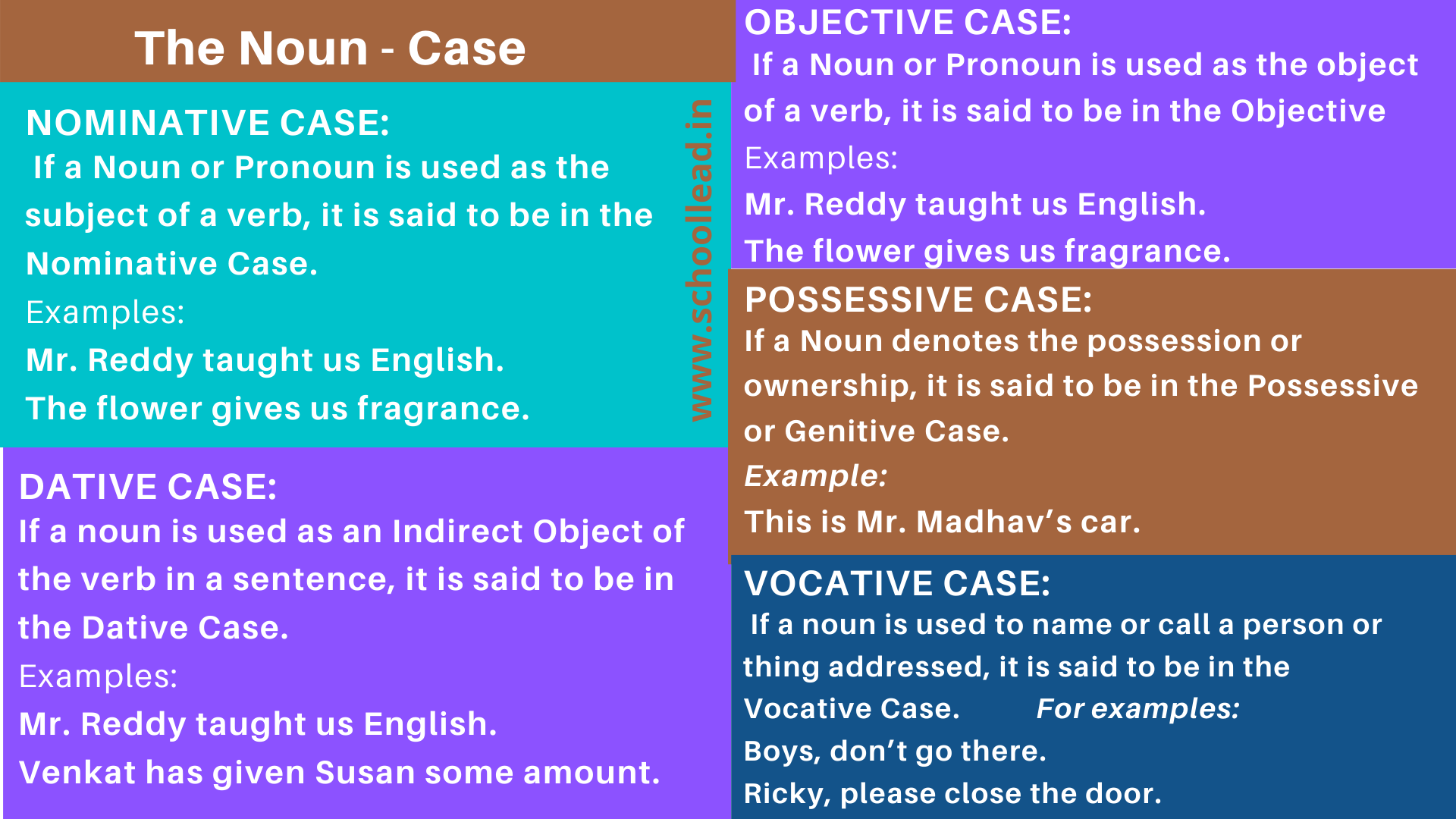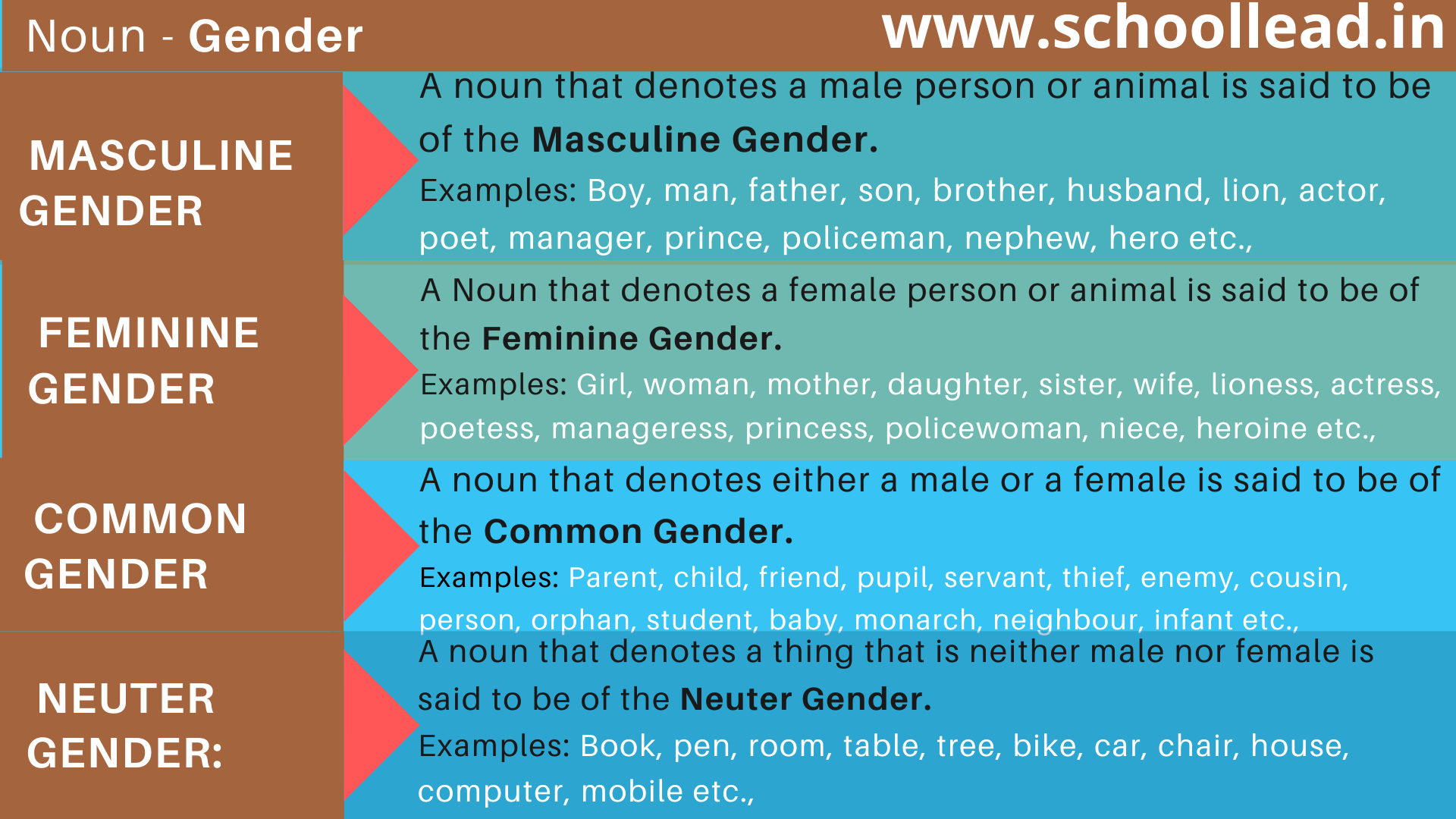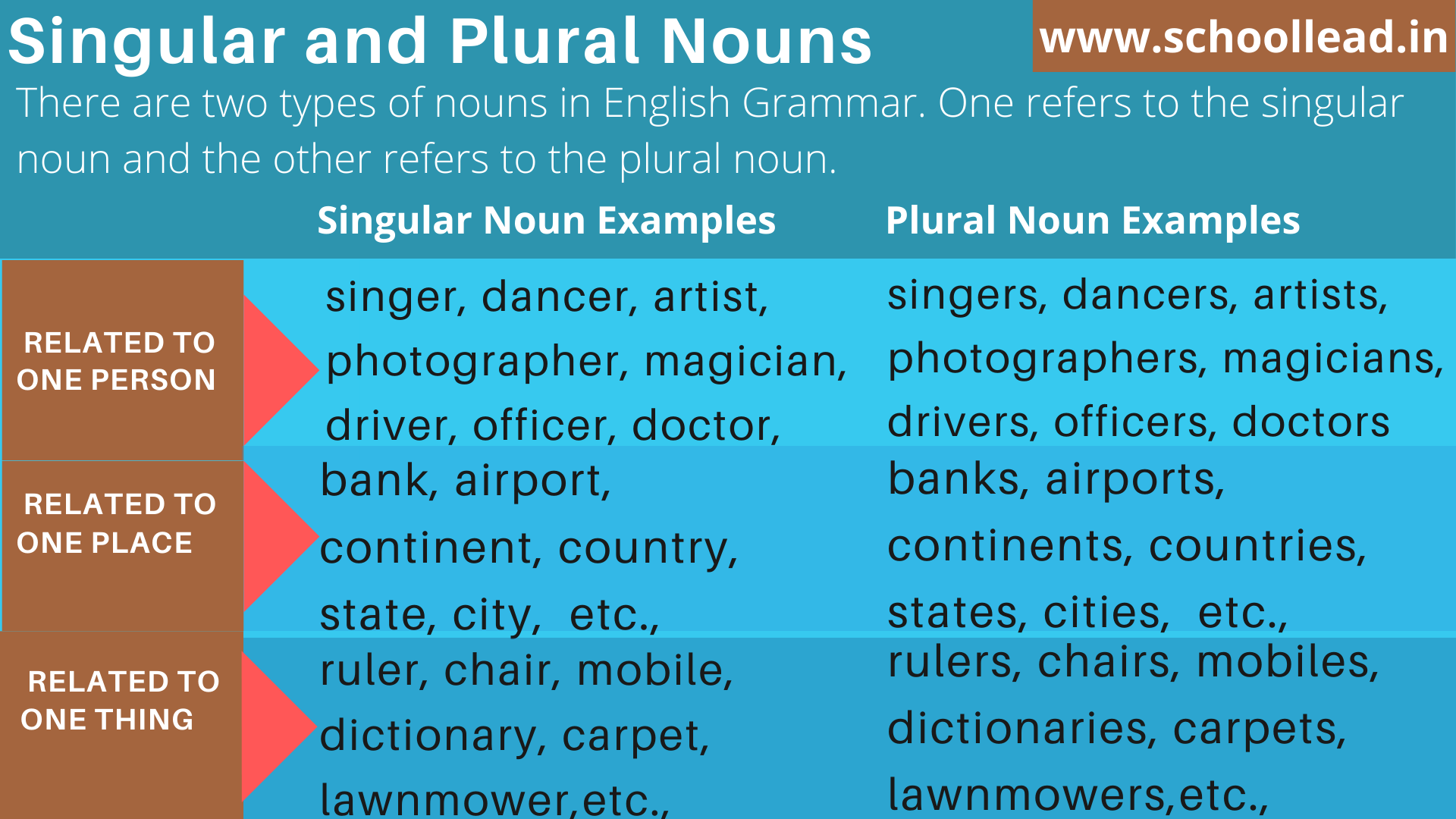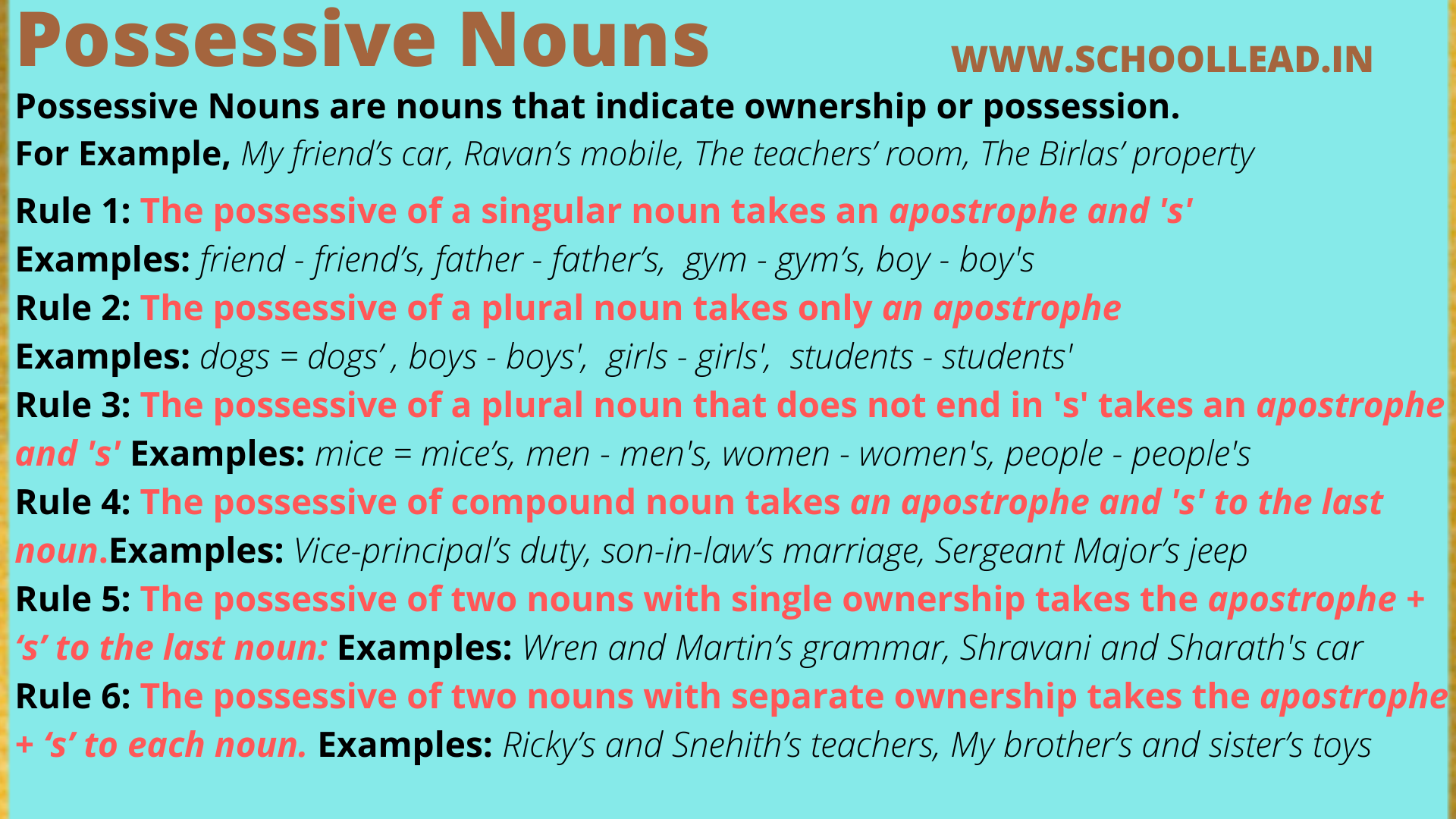Omission of the Relative Pronoun: Introduction to Omission of the Relative Pronoun: The Relative Pronoun introduces the relative clause and can be a subject or an object of the verb or the object
10.00 am - 06.00 pm +91 9866101718 contact@schoollead.in
Need study abroad support? Get In Touch
- Home Blog ( Page 2 )
Relative Pronouns: What are Relative Pronouns? Relative Pronouns are used to join a clause or phrase to a noun or pronoun (antecedent) in the previous clause. The Relative Pronoun introduces the relative clause
Reciprocal Pronouns: Reciprocal Pronouns are used when two or more nouns express a mutual or reciprocal action in a sentence. The Reciprocal Pronouns are ‘each other’ and ‘one another.’ The main purpose of
Possessive Pronouns: Possessive Pronouns replace a noun with an apostrophe and "s" to show ownership or possession of a noun. These pronouns are mainly used to substitute a noun or a noun phrase
Distributive Pronouns: Distributive Pronouns refer to persons or things one at a time. It considers the members of a group separately, rather than collectively. This pronoun is always singular and is used with
Indefinite Pronouns Indefinite pronouns don't refer to any particular person or thing. They are used to point to persons or things in general. These pronouns can function as singular, plural or both (singular
Demonstrative Pronouns A Demonstrative Pronoun is used to replace a noun or a pronoun that has already been mentioned in a sentence. This pronoun is used mainly to avoid repetition that may lead
Personal Pronouns Personal pronouns are used in place of specific people or things that we are talking about. We use these Personal Pronouns keeping in view of the Number, Person, Gender and Case:
Nouns of Multitude When a Collective Noun denotes individual members or things of the group, it is called a Noun of Multitude. Examples: Committee, team, syndicate, faculty, audience, public, company, Congress, orchestra,
Types of Nouns: Introduction to Types of Nouns: The noun is one of the eight parts of speech and it plays a very significant role in English Grammar. The verb is the first
The Noun - Case The Noun - Case Introduction: A grammatical case indicates the function of nouns and pronouns in regards to their relationship with other words in a sentence. Noun -
Gender of the Noun: Introduction: The word ‘Gender’ comes from the Latin word ‘genus’ which means ‘kind’ or ‘type’. A Gender is a noun that shows whether the noun is Masculine, Feminine, Common
Singular and Plural Nouns Nouns are the words used as the names of persons, animals, places, things, ideas or events. There are two types of nouns in English Grammar. One refers to the
Possessive Nouns What is a Possessive Noun? When we want to show that something belongs to somebody or something, we use the Possessive Nouns. These nouns can be singular or plural. It is


